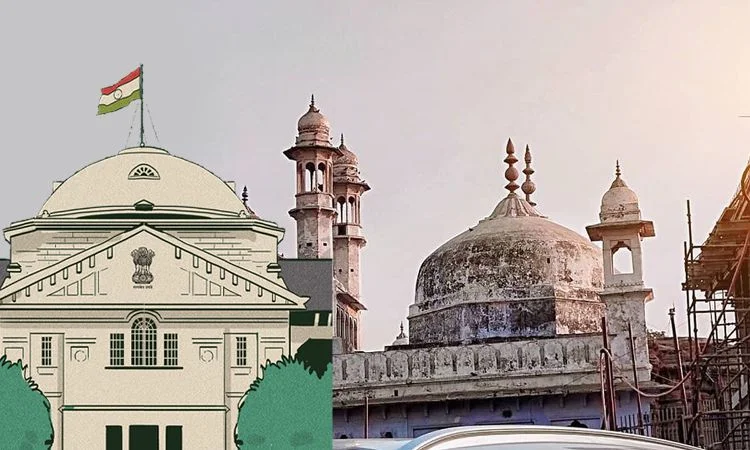The committee managing the Gyanvapi Masjid in Varanasi has approached the Allahabad High Court to challenge the recent order by a local district court that allowed Hindu devotees to perform puja at the mosque premises. The dispute relates to the ongoing legal battle involving competing claims over the status of the Gyanvapi mosque, located next to the iconic Kashi Vishwanath temple.

In its petition filed before the Lucknow bench of the Allahabad HC, the Anjuman Intezamia Masjid Committee contended that the Varanasi court order was passed without considering certain key facts and reports. Specifically, it highlighted the ASI survey report from 2003 that did not find conclusive evidence of a Hindu temple beneath the mosque and a court ruling from 1937 that settled the land’s status as a mosque.
The district court’s directive last week permitted Hindus to offer prayers at the ‘Vyas Tekhana’ or cellar within the Gyanvapi complex. However, the mosque committee argued this was done in undue haste without affording them sufficient time to legally challenge it. Hours after the order, a puja ritual was allowed to take place in the cellar for the first time in over 30 years, much to the displeasure of Muslim litigants.
They have now approached the high court seeking a stay on the district court’s decision till their objections are heard. Legal experts say the HC is likely to admit the petition and issue notices to the Hindu side for a response. A final decision may take some time as the court will need to thoroughly examine facts and arguments on both sides of the contentious matter.
The Gyanvapi mosque dispute has emerged as a key religious flashpoint in recent months after five Hindu women petitioned a local court seeking permission to offer regular prayers there. A court-mandated videography survey of the premises in May found a shivling within the wuzu khana or ablution tank, further fuelling claims. The matter is presently being heard by a district judge.
With both sides holding diametrically opposite views, the overall issue involves complex questions of faith and history that will need careful judicial scrutiny and a nuanced ruling. The latest legal move ensures the row will continue its journey through the Indian court system while communal tensions persist on the ground in Varanasi. All stakeholders will be hoping for a swift yet prudent resolution upholding both law and amity.















